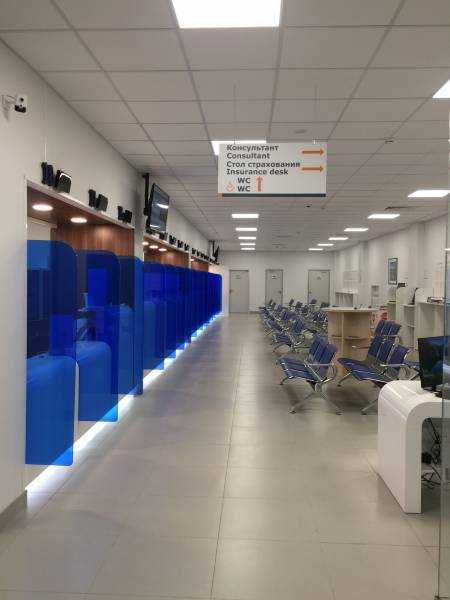Andrey Osintsev, Commercial Director of Svyaznoy Travel, spoke to TRN about growth points, key trends, and technologies.

In 2018, the tourism market will continue to recover from the onset of the crisis in the industry. Retail sales fell by 20% Compared to 2016, this suggests that middle- and low-income customers, as well as migrants, continue to reduce their travel spending and prefer cheaper travel options such as trains and buses to air tickets. The depth of holiday bookings, as well as the frequency and duration of trips, have decreased.
Online ticket sales remained at 2016 levels, while the average ticket price fell by 21% to 3% of the original price. However, this was also influenced by the rapid growth of low-cost airline Pobeda's ticket sales, the pricing policies of competing airlines on these routes, and the introduction of baggage-free fares, which undoubtedly increased competition and led to an overall decline in airfare prices in 2017.

What will help the tourism market grow this year?
According to our expert, this is the 2018 FIFA World Cup and falling prices at Russian resorts.
The expert also noted that there is a possibility that resort areas in Egypt (particularly Hurghada) will be opened to charter flights, and tour operators will begin creating packages as early as the first quarter of this year.
"Based on Svyaznoy Travel's sales in 2017, we see that the declining exchange rates were one of the driving factors behind the surge in interest in short trips. Many people took advantage of the declining exchange rates and favorable airline offers to actively travel during the holidays. Given that the number of convenient trips for this type of travel increased in 2018, we also expect increased demand during the pre-holiday periods," he says.
Domestic tourism still doesn't compensate for the decline in outbound tourism. This is due to several factors. The main one is the limited choice of destinations in Russia. In winter, there are Sochi, Dombay, and Sheregesh, while in summer, there are resorts in the Krasnodar Krai, Crimea, and Mineralnye Vody. At the same time, the expert notes a rapid growth in health tourism. The infrastructure and service at most Russian resorts still lag behind even the most affordable foreign destinations (Turkey, Montenegro, Bulgaria). In winter, residents of the European part of Russia essentially have nowhere else to go within Russia except Sochi. The resort is developing, but its resources are insufficient to meet demand.
When it comes to summer destinations, planning a trip to Crimea for an independent traveler is difficult. Airfare is quite high, and while train service is available, it still requires transfers—trains run from Russian cities to Krasnodar or Anapa, with passengers then offered bus transfers. A significant number of independent travelers are also discouraged by the lack of reliable online hotel booking services. If prices in Crimea remain unchanged, an even greater decline in tourist traffic can be expected in 2018, which could be critical for the resort's future development.
Krasnodar Krai resorts will be popular this year, especially Sochi, but Türkiye opened up to travelers in 2017, and the launch of Pobeda flights to Alanya is unlikely to increase the number of independent tourists on Russia's Black Sea coast.

"We're seeing positive changes in the rail transportation segment compared to previous years. Russian Railways has expanded its booking depth and become more flexible with pricing. The company is now doing a lot to popularize rail travel (effective product promotion, attractive terms for partners). Rail ticket sales are no longer as seasonal as they once were. Train tickets are now available 60 days before departure, up from 45 days previously.
Wellness tourism is growing, and we see this as a promising area. This type of tourism will be able to fully realize its potential when high-quality partnership programs are launched," Osintsev emphasized.
About the main trends
"First of all, we've seen independent travelers increasingly purchasing insurance. This includes not only health insurance for international travel, but also insurance products that compensate travelers for lost luggage and trip cancellations. Clients are willing to pay a relatively small premium for insurance to feel safer while traveling and save on medical expenses if necessary," stated a TRN expert.
As he noted, Russian travelers still use different services to book flights and hotels. Although many companies strive to offer a full range of travel planning services on a single website, the share of hotel bookings in total sales for these OTAs does not exceed 51%3 of the total.
Independent travelers continue to actively use mobile devices to purchase tickets. Mobile traffic increased in 2017, while desktop traffic remained flat.
Mobile apps are the most effective sales channel. App users convert twice as quickly as even the mobile version of the website. The app is used by a loyal audience, more than half of whom make two or more purchases annually.

About technologies
We plan to add a new "price dynamics" feature to all Svyaznoy Travel resources, allowing you to track price changes for your desired destination. We also plan to develop the functionality of Aviabot (a Facebook bot), which can currently search for trips within a specific budget and process ticket refunds. We also plan to add a new train ticket provider, which will make our offer even more advantageous, and also allow you to search for round-trip train tickets.
We're also actively working to expand the list of airlines we integrate directly (for example, via the NDC protocol), which allows us to improve our pricing and more effectively offer additional services that are often not available when booking tickets through GDS systems. In December 2017, we added offers from international low-cost carriers to our website. The testing was successful, and we plan to further develop this innovation." — the speaker said.
In the first quarter of this year, the company will also update its line of insurance products, making them more attractive and beneficial for clients. This includes baggage and flight delay insurance products, where payouts will be made immediately upon the occurrence of a risk, without the need for receipts, certificates, or similar documents confirming financial losses.

"There's also discussion in the travel industry about using blockchain technology for settlements between airlines and travel agents. However, at this stage, it's too early to say whether this technology will be put to practical use in the near future, as the agent doesn't enter into a carriage agreement with third parties and effectively bears the risks associated with the client's ability to cancel the transaction through the bank after the ticket is issued."
“Currently, there are no projects in the tourism market using blockchain technology that could change the industry and improve business processes,” the expert noted.
Source: trn-news.ru













